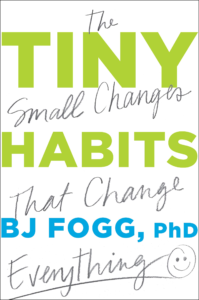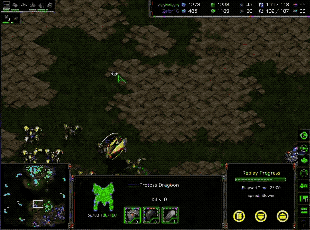
Check out the full notes for “Tiny Habits” by BJ Fogg
The joys of a spider mine. This is also the result of some Siege Tanks firing at the same time. This was from about half an hour ago and not like a decade ago.
Some quick links…
- Ryen Russillo has Nick Bilton on to talk about American Kingpin — Off the top of my head, top 3 of my favorite audiobooks. (And Bilton’s other book Hatching Twitter might be right up there also.) Russillo also had Tom Wright on last year to talk about Billion Dollar Whale. Bill Simmons mentioned in some episodes this year that he’s trying to read 75 books this year. Would love if Simmons and Russillo discussed those books and brought the authors on, or had Klosterman/Gladwell/Michael Lewis doing Rereadables episodes.
- I’m continuing through Sam Sheridan’s The Fighter’s Mind and finished the chapter on Josh Waitzkin this morning. Always good to read more about Waitzkin, beyond his book The Art of Learning and his appearances on Tim Ferriss’s podcast. When The Fighter’s Mind was written (2010), Waitzkin was still a brown belt. From chess to push hands to BJJ to hydrofoiling. An expert at becoming an expert.
Here’s a quote from Josh Waitzkin in The Fighter’s Mind. He’s talking about a small, high-level chess tournament and the area usually gets rained on at some point during the weekend. He watched how his chess peers reacted.
“If they put their hands up and run, they’re controllers. So, over the chessboard, you take a critical moment and make it chaotic, out-of-control. Make it so they have to embrace the unknown to perform. “But if they stand and just get wet and enjoy the rain, then maybe they embrace chaos—that was the kind of player I was. So for them you create a position where it takes painstaking, mind-numbing calculation to succeed.
Which reminds me of something else he’s talked about, in raising his son. One of my favorite ideas that I’d love to use down the line when the time comes. When there’s a storm, he takes his son out to go play outside in it.
I don’t think we’ve missed a single storm, rain or snow from going outside and romping in it. And we’ve developed this language around how beautiful it was. And so now whenever it’s a rainy day, Jack says, “Look Dada it’s such a beautiful rainy day,” and we go out and we play in it.
I wanted him to have this internal locus of control; to not be reliant on external conditions being just so.
You can ruin your day just worrying about what’s coming.
Or not.
It’s up to you.
Here’s something from BJ Fogg’s Tiny Habits, where he talks about starting the day with his ‘Maui habit’—saying “Today will be a great day.”
If you do the Maui Habit and feel that it won’t be a great day, I advise you to still say this phrase. I say it even on mornings when I feel exhausted or overwhelmed or anxious about the day ahead. In that moment, sitting on the edge of my bed, I try to feel optimistic. But if this feels phony, then I adjust the phrase and my intonation as I say, “It’s going to be a great day—somehow.”
That somehow can be throwing your rain gear on and stomping in the rain.
Okay so the connection I’ll pull together here with Starcraft is that Waitzkin has talked about using an efoil to get a lot of paddleboarding reps in without needing to wait around for the environment to participate.
Starcraft lets you get rep after rep of thinking about building an economy and then directing your attention to different things. Whether that skill can transfer directly to other disciplines is another question. Tobi Lutke (foudner of Shopify) has credited Starcraft with helping him learn concepts he’s later applied to business.
Not to say it’s all because of Starcraft.
Just that games can be really good. What have I been learning? I do actually think playing Starcraft has made me a little bit better at directing my attention to the right places when I’m in Figma. To stay moving when working on a user flow instead of narrowing down too early.
Macro for the long run.
